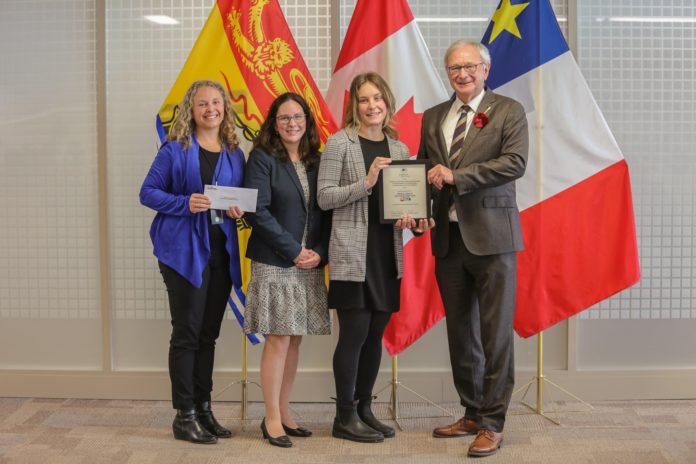

Pamela Durepos, Nicole Cormier and Chandra MacBean received the Award for Innovation in Mental Health and Addictions Care in New Brunswick for their research on dementia.
The award, valued at $5,000, will be used to invest in training specific to acceptance and commitment therapy, an approach to “accepting the hardships of life to improve one’s overall quality of living,” according to BetterHelp.
Before moving to New Brunswick and focusing on research, Durepos, an assistant professor at the University of New Brunswick, was a nurse at a hospital in Hamilton, Ont., where she faced difficult situations with dementia patients and their families.
“I started to learn from them … they don’t want necessarily for people to hide the truth from them about what might happen to their loved one. People want to feel in control and be able to make their own decisions,” she said.
After getting involved with an education and support group for family members of people with dementia, Durepos said she found a passion for end-of-life and palliative care, which focuses on comforting people facing their own or someone else’s death.
Durepos moved to New Brunswick three years ago and got involved with Acceptance and Commitment Therapy (ACT) Through Tele-Counselling for Family Caregivers, a program from the Alzheimer Society of New Brunswick that aims to increase access to psychotherapy for caregivers struggling with mental health concerns.
The program researches the benefits of acceptance and commitment therapy rather than cognitive behavioural therapy, studying 30 family caregivers of people with dementia.
According to the Alzheimer Society of Canada, one in five Canadians has experienced caring for someone living with dementia. Durepos said these caregivers are often left alone to deal with the immense pressure of caring for their loved ones.
“People are experts at hiding the struggles that they may have and often don’t want to seek help because of stigma,” she said. “It’s so important to be open with each other about everyday challenges that people are going through.”
Durepos said her main takeaway from the program is to help families feel connected to their loved ones and still be able to participate in activities they enjoy.
“You’re spiritually doing everything that you can together with your family member that they would want to have at the end of life, because they may not be able to tell you,” she said.
